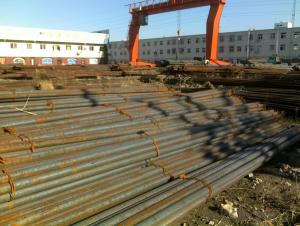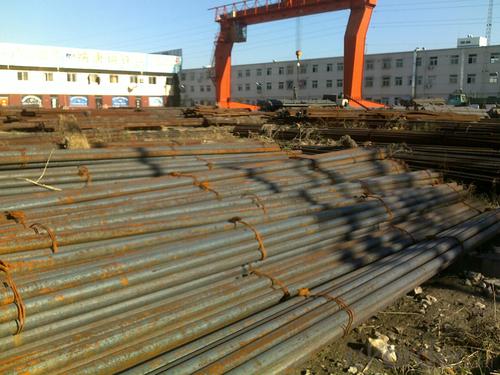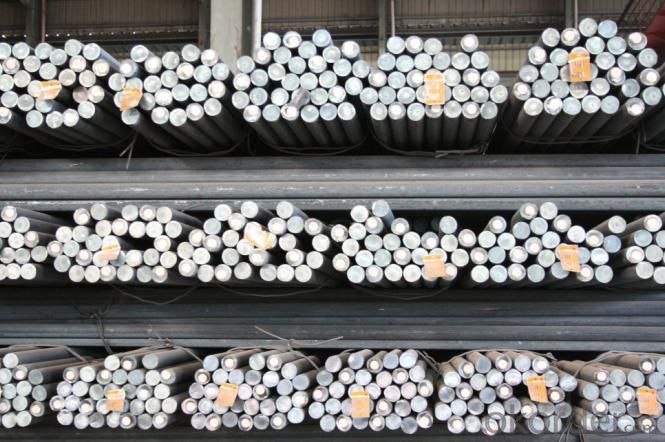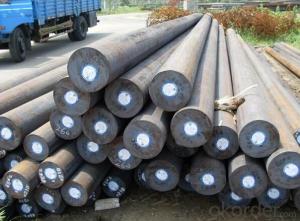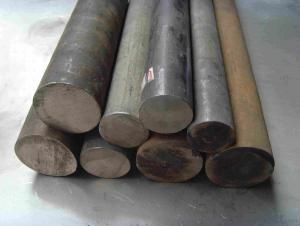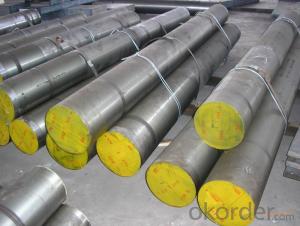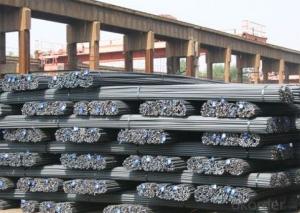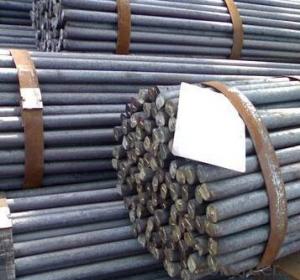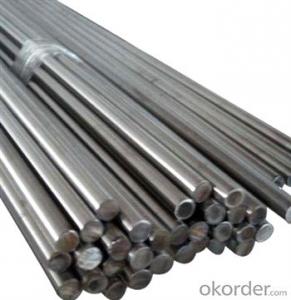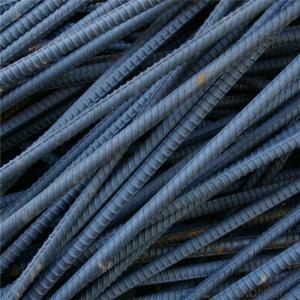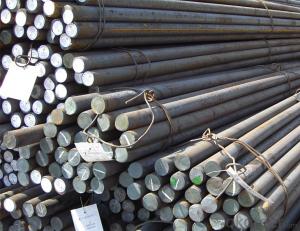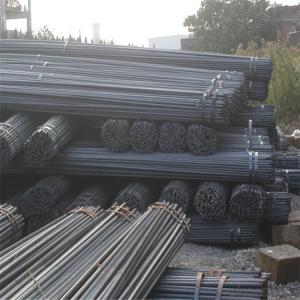Special Steel Reinforcing Steel Bars HRB400 Rebars
- Loading Port:
- China main port
- Payment Terms:
- TT OR LC
- Min Order Qty:
- 30 m.t.
- Supply Capability:
- 10000 m.t./month
OKorder Service Pledge
OKorder Financial Service
You Might Also Like
Specification
Product Information
1.Specification
Diameter(mm) | Φ6 ,Φ8,Φ10,Φ12,Φ13,Φ14,Φ16,Φ18,Φ20,Φ22,Φ25,Φ28,Φ32,Φ36,Φ40,Φ50 |
Length(m) | Unfolded / Straight Bundles weighing upto 2 Metric Tons and lengths is 6 Meters up to 15 Meters or according customers require |
U Shaped folded Bundles weighing up to 2 Metric Tons and lengths is 12 Meters | |
Rounded Coils ~ up to 2 Metric Ton Coils for Bending / Cutting Machine use. | |
Standard | GB(HRB335/HRB400/HRB500); |
BS4449 -1997 GRADE 250B, 460B; BS4449-2005 GRADE 500B; | |
ASTM A615 GRADE 40,GRADE60,GRADE75; ASTM A706; | |
DIN488-1 420S/500S, BST500S | |
JIS G3112 SD35, SD40, SD50,SD390 | |
NFA 35016 FE E 400, FE E 500 | |
CA 50/60 | |
GOST A3 R A500C | |
Surface finished | Screw-thread |
Epoxy coating | |
Galvanized coating | |
Production facility | Imports of production equipment from Italy |
Production capacity | 50,000 MT/month |
Payment term | T/T or 100% L/C at sight |
Package | In bundles. One bundles about 2-3tons |
2.Chemical composition
Grade | Technical data of the original chemical composition (%) | |||||
C | Mn | Si | S | P | V | |
HRB400 | ≤0.25 | ≤1.60 | ≤0.80 | ≤0.045 | ≤0.045 | 0.04-0.12 |
Physics capability | ||||||
Yield Strength (N/cm2) | Tensile Strength (N/cm2) | Elongation (%)
| ||||
≥400 | ≥570 | ≥14 | ||||
3.Theorectical weight
Diameter (MM) | Cross Sectional Area (MM2) | Theorectical Weight (KG/M) | Weight of 12M Bar (KG) | A Ton Contains 12M Bars (PCS) |
6 | 28.27 | 0.222 | 2.664 | 375.38 |
8 | 50.27 | 0.395 | 4.74 | 210.97 |
10 | 78.54 | 0.617 | 7.404 | 135.06 |
12 | 113.1 | 0.888 | 10.656 | 93.84 |
14 | 153.9 | 1.21 | 14.52 | 68.87 |
16 | 201.1 | 1.58 | 18.96 | 52.74 |
18 | 254.5 | 2 | 24 | 41.67 |
20 | 314.2 | 2.47 | 29.64 | 33.74 |
22 | 380.1 | 2.98 | 35.76 | 27.96 |
25 | 490.9 | 3.85 | 46.2 | 21.65 |
28 | 615.8 | 4.83 | 57.96 | 17.25 |
32 | 804.2 | 6.31 | 75.72 | 13.21 |
36 | 1018 | 7.99 | 98.88 | 10.43 |
40 | 1257 | 9.87 | 118.44 | 8.44 |
Product Show
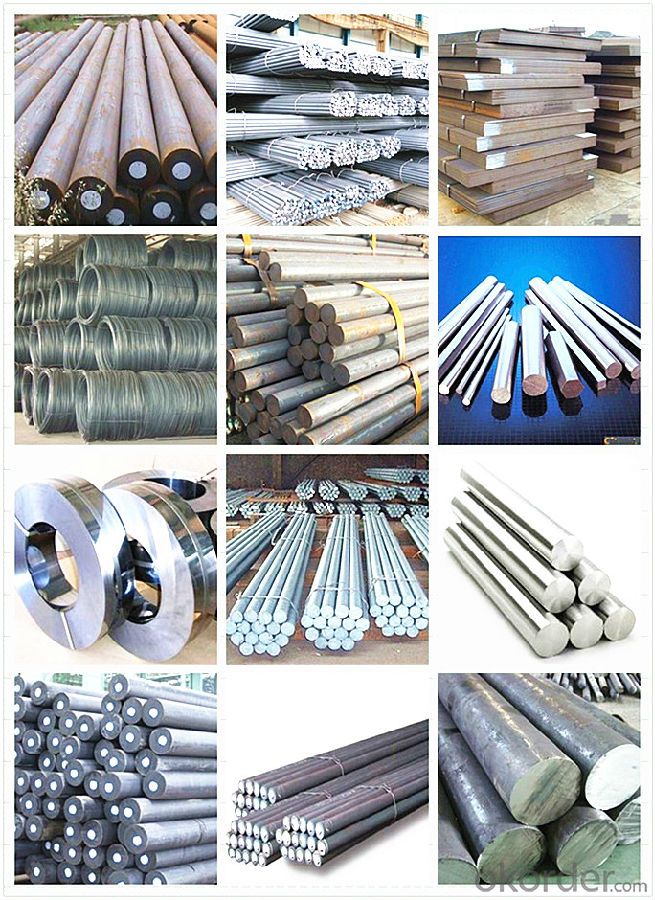
Workshop Show
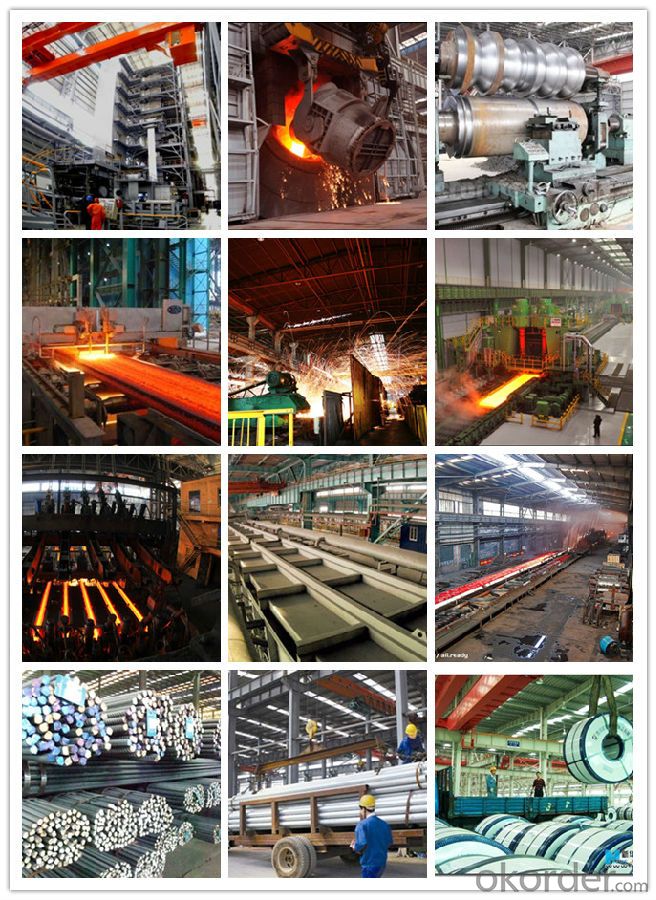
Shipping
1. FedEx/DHL/UPS/TNT for samples, Door-to-Door;
2. By Air or by Sea for batch goods, for FCL; Airport/ Port receiving;
3. Customers specifying freight forwarders or negotiable shipping methods!
Delivery Time: 3-7 days for samples; 5-25 days for batch goods.
Payment Terms
1.Payment: T/T, L/C, Western Union, MoneyGram,PayPal; 30% deposits; 70% balance before delivery.
2.MOQ: 1pcs
3.Warranty : 3 years
4.Package Informations: 1) EXPORT, In 20 feet (GW 25 ton) or 40 feet Container (GW 25 ton)
2)as customer's requirement
Why choose us?
(1) The leading exporter in China special steel industry.
(2) Large stocks for various sizes, fast delivery date.
(3) Good business relationship with China famous factories.
(4) More than 7 years steel exporting experience.
(5) Good after-sales service guarantee.
- Q: What are the different types of tool and die steel?
- There are several different types of tool and die steel, including high-speed steel, cold work steel, hot work steel, and plastic mold steel.
- Q: What are the main advantages of using special steel in the aerospace industry?
- The main advantages of using special steel in the aerospace industry are its high strength-to-weight ratio, excellent corrosion resistance, and superior heat resistance. Special steel allows aircraft to be lighter, yet still maintain the necessary structural integrity and safety standards. Its resistance to corrosion ensures the longevity of the aircraft, even in harsh environments. Additionally, special steel's ability to withstand high temperatures makes it suitable for use in jet engines and other crucial components, ensuring optimum performance and safety in aerospace applications.
- Q: How is special steel used in the aerospace manufacturing process?
- Special steel is used in the aerospace manufacturing process due to its exceptional strength, durability, and resistance to extreme temperatures. It is utilized in various components such as turbine engines, landing gear, and structural parts, ensuring the safety and reliability of aircraft. Additionally, special steel alloys are employed in critical areas where weight reduction is necessary, enhancing fuel efficiency and overall performance.
- Q: How does special steel perform in high-vibration environments?
- Special steel is specifically designed to withstand high-vibration environments. Its unique composition and metallurgical properties make it highly resistant to fatigue, cracking, and deformation caused by vibrations. Additionally, special steel exhibits superior damping capacity, effectively absorbing and dissipating vibrations, thus reducing the risk of structural damage or failure in high-vibration environments.
- Q: How does special steel contribute to the creep resistance of products?
- The creep resistance of products is aided by special steel due to its distinct properties and composition. Creep, which refers to the gradual deformation of a material under constant stress over time, is a significant concern in industries that involve high temperatures and prolonged usage. To combat this, special steel, also known as high-temperature steel or heat-resistant steel, is specifically designed to endure these extreme conditions and minimize creep. The high melting point of special steel is one of the key factors that contribute to its resistance against creep. Typically, special steel is alloyed with elements like chromium, nickel, molybdenum, and vanadium, which considerably elevate its melting point compared to regular steel. This increased heat resistance enables special steel to retain its structural integrity and resist deformation even when exposed to elevated temperatures. The unique microstructure of special steel also plays a crucial role in its ability to resist creep. Engineers deliberately create a fine-grained structure in special steel, which enhances its strength and hinders the movement of dislocations within the material. Dislocations are imperfections in the atomic arrangement of a material that can lead to creep deformation. By minimizing dislocation movement, special steel exhibits greater resistance to creep and maintains its shape and dimensional stability over extended periods. Additionally, special steel often has a higher content of certain alloying elements. For example, the addition of elements like molybdenum and vanadium enhances the creep strength of special steel by forming stable carbides within the material. These carbides act as barriers to dislocation movement, further hindering creep deformation and improving the overall resistance to creep. Advanced heat treatment processes, such as quenching and tempering, are frequently employed on special steel to optimize its mechanical properties and enhance its resistance against creep. These heat treatments refine the microstructure, improve the distribution of alloying elements, and increase the hardness and strength of the material, all of which contribute to better resistance against creep. In summary, special steel's ability to withstand high temperatures, its unique microstructure, and its alloying elements and heat treatment processes collectively provide exceptional resistance against creep. As a result, special steel is an ideal choice for various applications that require durability and longevity under extreme thermal conditions, such as gas turbines, nuclear reactors, high-temperature boilers, and aerospace components.
- Q: How does special steel contribute to the manufacturing of power generation equipment?
- Special steel plays a crucial role in the manufacturing of power generation equipment by offering exceptional strength, durability, and corrosion resistance. It is used to construct various components such as turbine blades, generator shafts, and pressure vessels, ensuring efficient and reliable power generation. Additionally, special steel's high temperature resistance enables it to withstand extreme operating conditions, ensuring the longevity and efficiency of power generation equipment.
- Q: What are the properties of corrosion-resistant stainless tool steel?
- Corrosion-resistant stainless tool steel possesses a number of key properties. Firstly, it exhibits excellent resistance to corrosion, making it highly durable and suitable for use in corrosive environments. It also has high strength and hardness, ensuring its effectiveness as a tool material. Additionally, this type of steel offers good wear resistance, enabling it to withstand repeated use without significant deterioration. Moreover, it retains its sharpness and cutting edge for extended periods, making it an ideal choice for various cutting and machining applications. Overall, the properties of corrosion-resistant stainless tool steel make it a reliable and long-lasting option for demanding industrial and manufacturing settings.
- Q: What are the challenges in surface treating special steel?
- When it comes to surface treating special steel, a range of challenges can arise due to the unique properties and composition of the material. Some of the main challenges that need to be addressed are as follows: 1. Hardness: Special steels often possess a high level of hardness, which poses difficulties in achieving effective surface treatment. Traditional methods like heat treatment or chemical processes may not be sufficient to modify the surface properties without impacting the core strength. 2. Surface contamination: During the surface treatment process, special steels are vulnerable to contamination. Even the smallest traces of impurities or foreign materials can compromise the integrity of the treated surface. It is crucial to maintain a controlled environment and utilize clean equipment to minimize the risks of contamination. 3. Complex alloy composition: Special steels are typically alloyed with various elements to enhance specific characteristics, such as corrosion resistance or high temperature stability. This complex composition can make it challenging to find suitable surface treatment techniques that can effectively modify the surface properties without negatively affecting the overall performance of the alloy. 4. Adhesion and coating uniformity: Ensuring good adhesion and coating uniformity on special steel surfaces can be problematic. The surface characteristics and microstructure of special steels can make it challenging for coatings or treatments to properly and evenly adhere. Special attention must be paid to surface preparation and the selection of appropriate primers or coatings to ensure optimal adhesion and uniformity. 5. Heat sensitivity: Some special steels may be sensitive to heat during surface treatment processes. Excessive heat exposure can lead to changes in the material's properties, including structural alterations or deformation. It is essential to carefully control temperatures and employ suitable cooling methods to prevent any undesirable effects on the steel during the surface treatment process. 6. Cost: The process of surface treating special steel can be costly due to the specialized equipment, materials, and expertise required. Additionally, the challenges mentioned above can increase the complexity and time needed for surface treatment, resulting in higher costs. It is crucial to take these factors into consideration when planning and budgeting for surface treatment on special steel components.
- Q: How does special steel perform in terms of hardness?
- Special steel performs exceptionally well in terms of hardness. Due to its unique alloy composition and precise manufacturing process, it exhibits superior hardness compared to conventional steel. This enhanced hardness allows special steel to withstand high pressures, resist wear and tear, and provide excellent performance in demanding applications across various industries.
- Q: How does special steel contribute to the electrical industry?
- Special steel plays a crucial role in the electrical industry by contributing to the production of various components and equipment necessary for generating, transmitting, and distributing electricity. One important application of special steel in the electrical industry is in the manufacturing of power transformers. These transformers are essential for stepping up or stepping down the voltage levels in the electricity grid, enabling efficient transmission and distribution of electricity. Special steel, with its high strength, durability, and excellent magnetic properties, is used to construct the transformer cores. The high magnetic permeability of special steel ensures minimal energy loss during the transformation process, resulting in more efficient power transmission. Furthermore, special steel is also extensively used in the production of electrical conductors, such as wires and cables. These conductors are responsible for carrying electricity from power plants to various end-use applications. Special steel wires are known for their high conductivity and resistance to corrosion, making them ideal for transmitting electricity over long distances with minimal energy loss. Additionally, special steel is used in the manufacturing of electrical connectors and terminals, ensuring secure and reliable connections between different electrical components. In the electrical industry, special steel is also employed in the fabrication of electrical motors and generators. The high strength and magnetic properties of special steel contribute to the efficient conversion of electrical energy into mechanical energy, enabling the smooth operation of motors and generators. Moreover, special steel is used for manufacturing electrical switches, circuit breakers, and other protective devices, ensuring the safe and reliable functioning of electrical systems. Overall, special steel plays a vital role in the electrical industry by facilitating the production of essential components and equipment necessary for the generation, transmission, and distribution of electricity. Its unique properties contribute to improved energy efficiency, reliability, and safety in electrical systems, making it an indispensable material in this industry.
Send your message to us
Special Steel Reinforcing Steel Bars HRB400 Rebars
- Loading Port:
- China main port
- Payment Terms:
- TT OR LC
- Min Order Qty:
- 30 m.t.
- Supply Capability:
- 10000 m.t./month
OKorder Service Pledge
OKorder Financial Service
Similar products
Hot products
Hot Searches
Related keywords
